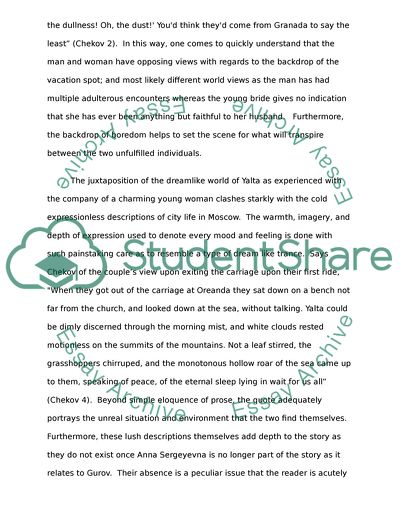Cite this document
(“The Lady With the Dog Essay Example | Topics and Well Written Essays - 1500 words - 1”, n.d.)
The Lady With the Dog Essay Example | Topics and Well Written Essays - 1500 words - 1. Retrieved from https://studentshare.org/literature/1603953-the-lady-with-the-dog
The Lady With the Dog Essay Example | Topics and Well Written Essays - 1500 words - 1. Retrieved from https://studentshare.org/literature/1603953-the-lady-with-the-dog
(The Lady With the Dog Essay Example | Topics and Well Written Essays - 1500 Words - 1)
The Lady With the Dog Essay Example | Topics and Well Written Essays - 1500 Words - 1. https://studentshare.org/literature/1603953-the-lady-with-the-dog.
The Lady With the Dog Essay Example | Topics and Well Written Essays - 1500 Words - 1. https://studentshare.org/literature/1603953-the-lady-with-the-dog.
“The Lady With the Dog Essay Example | Topics and Well Written Essays - 1500 Words - 1”, n.d. https://studentshare.org/literature/1603953-the-lady-with-the-dog.


